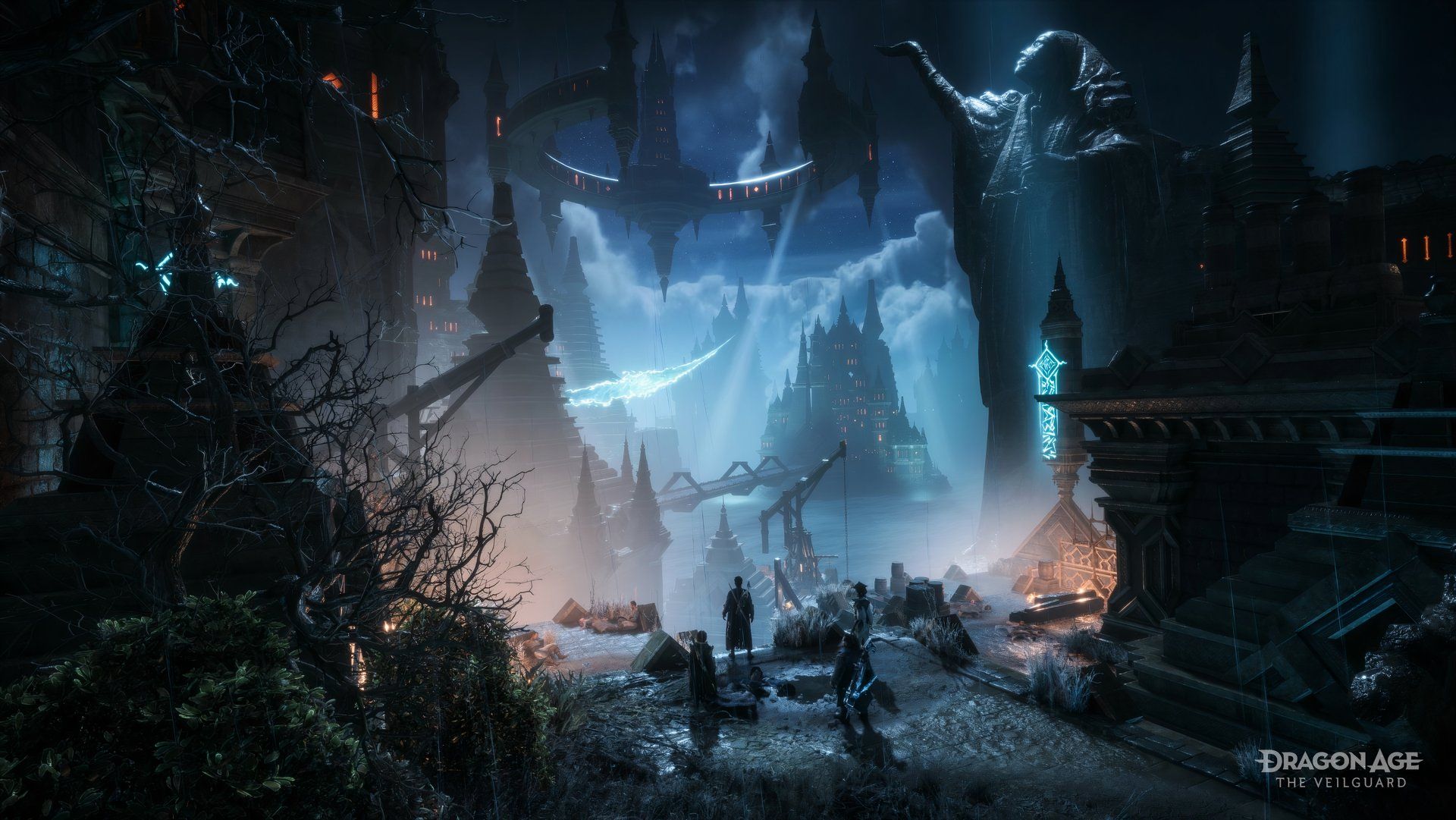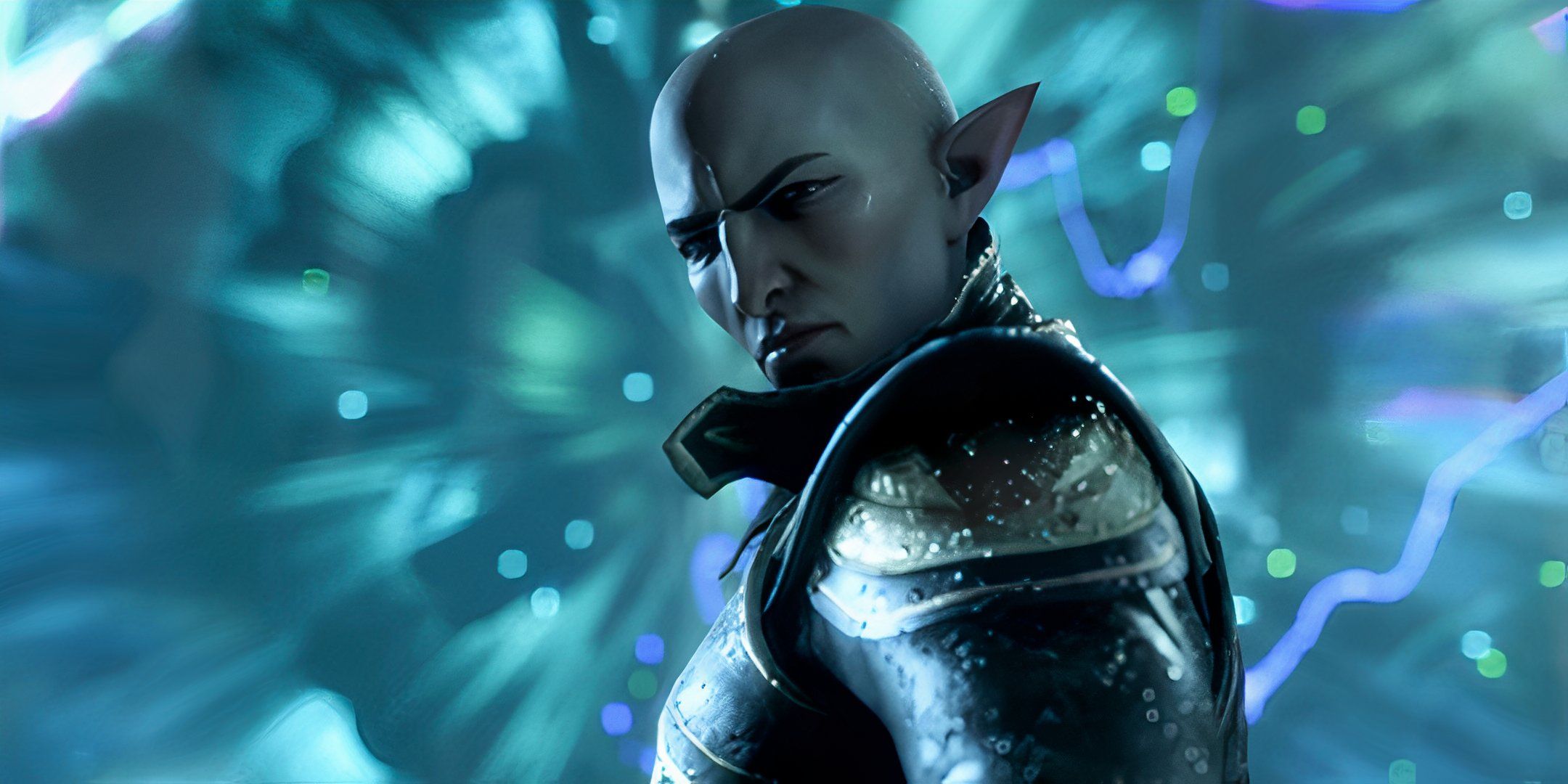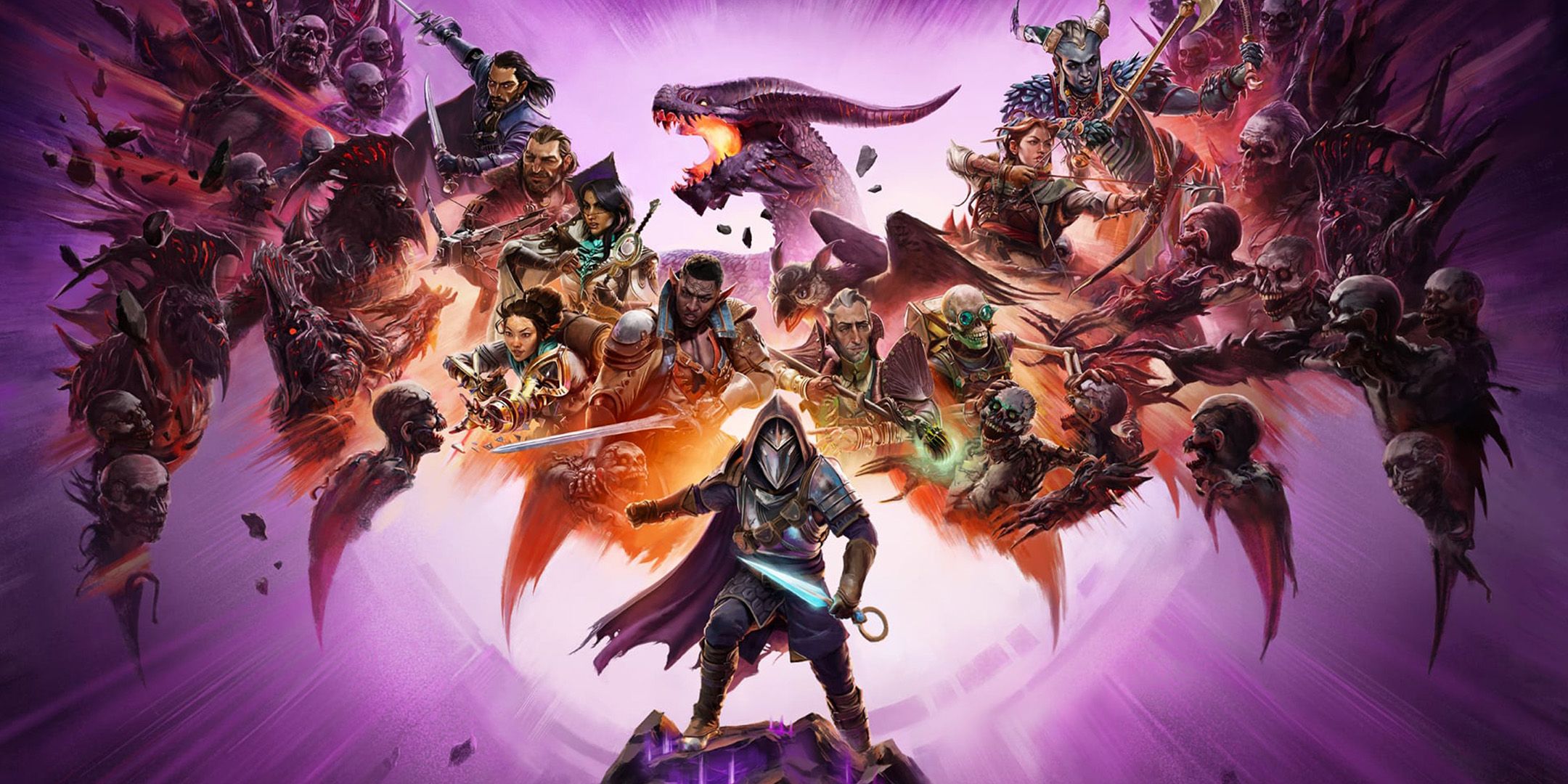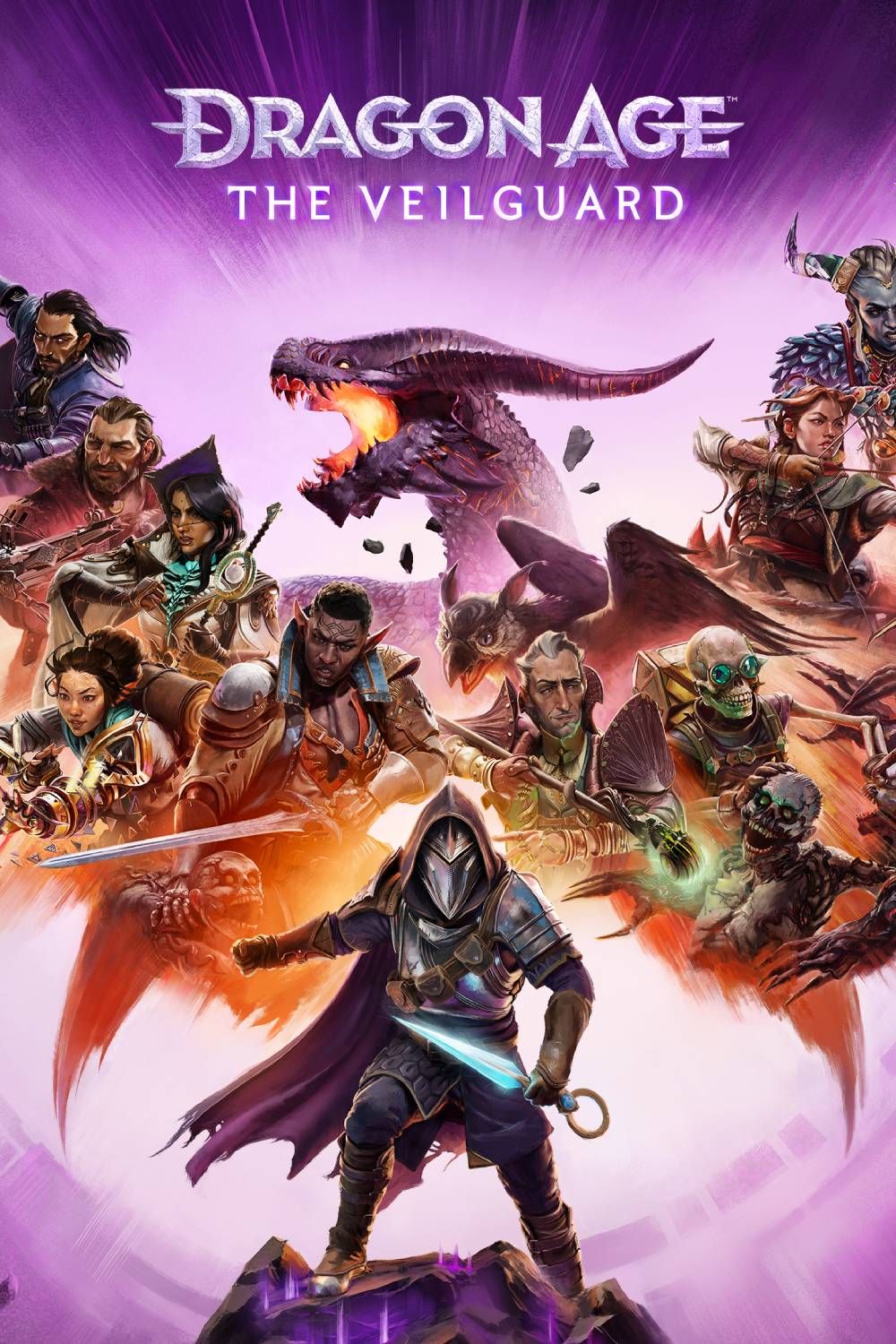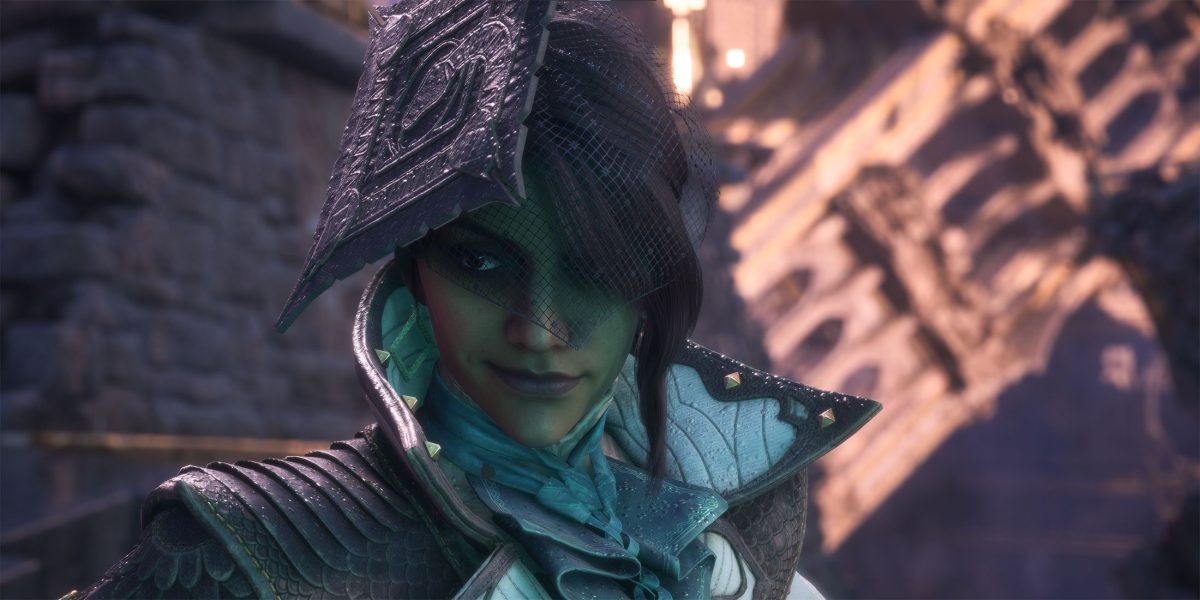
The Veilguard’s Best Feature Could Easily Go Unnoticed
Sometimes, the best things about a game are design decisions that intentionally go unnoticed. A good example is a powerful soundtrack, especially in horror games, where the music is meant to supplement the direction of a scene or gameplay section and not override it. It adds to the experience, oftentimes intentionally not drawing attention to itself. Interestingly, though, Dragon Age: The Veilguard pulls off this same trick with choices, but it is not something that can be realized in one playthrough.
This article contains
MAJOR spoilers for choices
and the
ENDING
, made possible in multiple playthroughs of Dragon Age: The Veilguard.
Choice-based games are popular because of the unique agency they offer players, but many players dislike it when the choices are just illusions. This happens, to some degree, in every choice-based game, and it’s often considered to be a crutch or a bad thing because it causes people to believe they have a wider range of choices when it ultimately leads to a limited (or even just one) outcome, contributing to a false sense of control. But, for real choices to matter, sometimes there needs to be an illusion in another. There is an argument, for sure, to be made about how heavily illusion of choice should appear in a game like Dragon Age: The Veilguard, but it plays with hard choices, the illusion of choice, and the engagement with choice in ways not common to the genre.
Minrathous or Treviso Has More Consequences Than You Realize
The first major choice in Dragon Age: The Veilguard is whether to save Minrathous or Treviso from a dragon attack. The immediate outcomes are obvious: one city becomes blighted, Neve or Lucanis become hardened. The game gives players a fair warning that the hardened companion is more aggressive and less supportive in combat, and that building a bond with them will be harder. However, what it doesn’t say is that it also indirectly affects a choice later in the game involving these two companions too. Based on the choice between Minrathous and Treviso, players could have no input on a choice later in the game, meaning that one choice eliminates another IF players are not super on-top of things.
Specifically, choosing between Minrathous and Treviso also affects the choices of who becomes the Archon of Minrathous (Dorian or Maevaris) AND what Lucanis does with the Antivan Crow traitor (Illario) later on. If players get the scene, like with Illario, choices of what Lucanis should do with him are not given to the player. Likewise, Dorian will become the Archon of Miranthous without any input from the player where one or the other IS a choice for the player. This means, if someone is unaware and does not make up for the former choice, they can go through an entire playthrough not realizing that they lost a choice because of how they engaged with the game and its choices. The illusion here is a disappearing act for a real choice because, until that same player does another playthrough and makes the opposite Minrathous/Treivso choice, there can be no indication that the Archon/traitor choice even exists.
SERIOUSLY, MAJOR ENDING SPOILERS AHEAD
You’ve Earned the Respect of the Dread Wolf, But Have You?
Dragon Age: The Veilguard also intentionally uses an illusion of choice to lead the player into a false sense of security with Solas. First, it’s worth mentioning that this taps into one key element of Solas: how he mirrors others. Solas is a divisive character because of his relationship with the inquisitor in Dragon Age: Inquisition, but this is partially because he mirrors others. Some will think he’s incredibly arrogant, others will think he’s meek and mild, and others will punch him. In Inquisition, if players come at Solas with ego, he meets them in return with his own ego and a sarcastic wit; if players are inquisitive, he does the same and offers advice and answers in ways he can; and if players are humble, he in return is humble. This, to some degree, plays into the ending of Dragon Age: The Veilguard. If players trick him, they effectively mirror him; if they attempt to kill him, they match his ego, even Elgar’nan’s ego; and if players mirror his pain and plead for him to stop, it is possible to redeem him. They must mirror him, not simply be another version of him – as he attempts to mold Rook.
However, the set-up for this trick comes earlier. Although he is more aggressive in Dragon Age: The Veilguard, Solas still mirrors Rook. He meets ego with sarcasm, sincerity with wisdom, and disbelief with ridicule. No matter what you players do, however, they will eventually be given an indicator that they’ve earned the Dread Wolf’s respect. This is, by definition, illusion of choice, but also something players can’t realize on a first playthrough. They earn his respect no matter what choices they make, but that’s to weaponize this illusion of choice just as Mythal weaponized his wisdom. Players who think they’ve earned his respect might come to understand why he traps them in the Cage of Gods, they might see his initial offering of the dagger as true conviction, and it makes the trick after trick after trick hit more once players realize his final plan. That trick began early in the game, but it is most symbolized by his “respect.” The pain of regret is not the only trap in Dragon Age: The Veilguard, but the demand for respect. Weaponizing this illusion of choice further colors every scene that follows, lulling players into a false sense of confidence and security in their relationship with the Trickster.
Whatever It Takes
The similarities between Dragon Age: The Veilguard‘s ending and Mass Effect 2 are obvious to anyone who has beaten both, but one thing Dragon Age: The Veilguard does differently is telegraph the possible choices a bit more. If someone pays attention to their choices, gets every companion the Hero of the Veilguard status, and maxes out the strength of their allies, then it’s pretty simple to go from choice to choice to choice, knowing what call to make. But choice without consequence means nothing. If players do not engage with the available systems, then it’s possible to make the right choices and still lose each companion like falling dominoes. Engaging with its systems is a choice, and that means not engaging with these systems is a choice too. The extreme is ignoring them all, and the game considers this proactive choice and reasonably punishes players.
Someone who ignores the companions and allies gets a fitting ending, just like someone who chooses to engage. There’s beauty in this. Whereas an earlier choice possibly removes another (Minrathous/Treviso and the Shadow Dragons/Crows), choosing to engage with its system unlocks the various ending choices. Choosing not to engage removes that choice, leading to a bad ending of Dragon Age: The Veilguard – one that notably carries as much weight as the entire mission. Whatever it takes, indeed. And this goes further. Dragon Age fans know to expect the slideshow-like presentation at the end, but if someone chooses to not engage, then the game breaks a major franchise tradition. In this case, there is only one slide indicating how The Veilguard died and was memorialized for the choices made by its leader, Rook.
Choice is important in games like Dragon Age: The Veilguard, and while The Veilguard is not as far-reaching as other Dragon Age games, it is intimate, appropriate, and more twisted than ever before. Most choice-based games result in choices leading to events that lead to more choices that lead to other events. That’s hardly consequence and more a chain of events, meaning players just pick the chains instead of having consequences for their choices. Dragon Age: The Veilguard offers choices of engagement, providing both rewarding and punishing consequences as a result; it offers illusions of choices, rewarding and punishing players who see through it or fall for it; and it makes some choices and consequences harder to engage with based on choices and consequences earlier in the game. As a result, Dragon Age: The Veilguard is a very different take on a choice-based game, but rather than a chain of events, it provides a chain of choices and consequences befitting the Dread Wolf.


